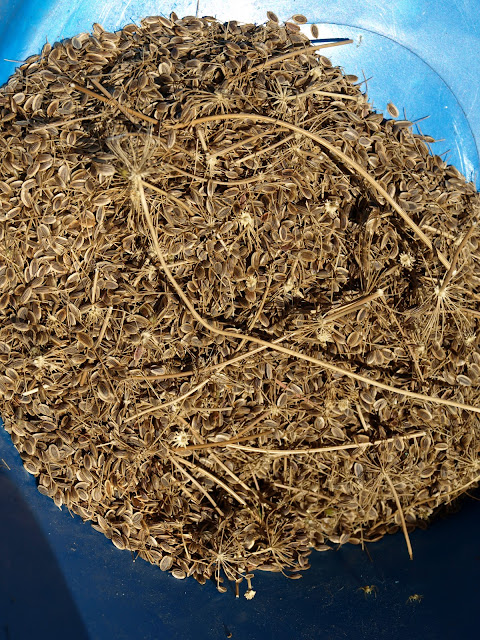 |
| Dill seeds ready to be collected |
Dill is a great crop to save seeds from as it will not cross pollinate with any other plants. There is an urban myth that dill will cross pollinate with fennel to create a terrible tasting, extremely invasive plant which produces tasteless and useless seeds. Thankfully this isn't true! Dill and fennel are in the same plant family, Umbelliferae, but they are in different genera, which basically means they cannot cross pollinate.
In fact dill (Anethum graveolens) is the only species in it's genus, which is why it cannot cross pollinate with other plants. However, different dill varieties will definitely cross pollinate.
Saving dill seed is also very straight forward, it really is just a matter of pulling the seeds off the plant and storing it.
The seed is ready to harvest when the whole umbel (bunches of seeds) and stem is dry. The seeds should be dry enough to rattle a little when the umbel shakes, at this stage they are also a little fragile and can easily fall from the plant.
 |
| Not all of these seeds are ready for harvest |
I always select the largest umbels from as many different plants as possible.
 |
| Pretty big umbels |
Rubbing the umbels between your fingers will cause the seeds to fall off very easily if they are ready.
The last step is to pick out large stems and store the seeds. I store them in paper envelopes. They would definitely not be dry enough yet to be stored in glass or plastic, which would cause them to go mouldy. Perhaps after a few months in the paper envelope they might dry out enough. However, they will be fine in a paper envelope if kept in a dark, dry, cool environment.







